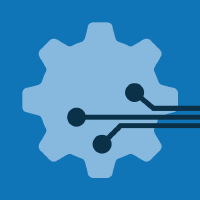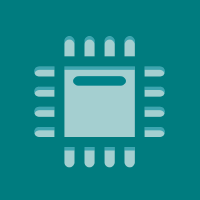Topic Menu
► Topic MenuTopic Editors




Advances on Automatic Control and Soft Computing from 15th APCA International Conference CONTROLO’2022
Topic Information
Dear Colleagues,
Nowadays there are several challenges related to automatic control systems, both from a theoretical point of view and from the point of view of real applications.
In the current context of industry 4.0, it is mandatory to develop advanced control methodologies, using optimization techniques, in order to improve the performance of processes and systems, trying to reduce operating costs.
This Topic is intended to share the state of the art of emerging approaches and novel techniques to find optimal solutions for open problems in the area of automatic control systems, namely: modeling, identification and simulation of dynamic systems, nonlinear systems, controllers design, fault detection and diagnosis approaches, fault tolerant control methodologies, among other related themes.
This Topic has a wide field of application areas, such as: process control, vehicle control, industrial automation, robotics, among others. Original contributions, including experimental validation, are expected. The topics of interest include but are not limited to:
- Cyber-Physical Systems
- Internet-of-Things
- Modeling and simulation
- Advanced control algorithms
- Nonlinear systems
- Optimization
- Fault detection and diagnosis
- Fault tolerant control
Dr. Luis Gomes
Dr. Luís Brito Palma
Dr. Bruno J. N. Guerreiro
Dr. Anikó Costa
Topic Editors
Participating Journals
| Journal Name | Impact Factor | CiteScore | Launched Year | First Decision (median) | APC | |
|---|---|---|---|---|---|---|

Actuators
|
2.6 | 3.2 | 2012 | 16.7 Days | CHF 2400 | Submit |

Applied Sciences
|
2.7 | 4.5 | 2011 | 16.9 Days | CHF 2400 | Submit |

Automation
|
- | - | 2020 | 26.3 Days | CHF 1000 | Submit |

Electronics
|
2.9 | 4.7 | 2012 | 15.6 Days | CHF 2400 | Submit |

Sensors
|
3.9 | 6.8 | 2001 | 17 Days | CHF 2600 | Submit |

MDPI Topics is cooperating with Preprints.org and has built a direct connection between MDPI journals and Preprints.org. Authors are encouraged to enjoy the benefits by posting a preprint at Preprints.org prior to publication:
- Immediately share your ideas ahead of publication and establish your research priority;
- Protect your idea from being stolen with this time-stamped preprint article;
- Enhance the exposure and impact of your research;
- Receive feedback from your peers in advance;
- Have it indexed in Web of Science (Preprint Citation Index), Google Scholar, Crossref, SHARE, PrePubMed, Scilit and Europe PMC.
Published Papers
Planned Papers
The below list represents only planned manuscripts. Some of these manuscripts have not been received by the Editorial Office yet. Papers submitted to MDPI journals are subject to peer-review.
Title: Optimization on Stiefel manifolds and Applications to Dimensional Reduction
Authors: Markus Schlarb; Knut Hüper; Christian Uhl
Affiliation: Julius-Maximilians-Universität Würzburg, Germany; Hochschule Ansbach, Germany
Abstract: A method for dimensional reduction of high-dimensional multivariate time-series whose dynamics is driven by a low-imensional ODE is presented. This leads to an optimization problem with orthogonality constraints. By using Riemannian optimization methods, this constraint problem is treated as an unconstrained problem on a manifold. In this context, Stiefel manifolds play a crucial role. The relevant differential geometric background is recalled in detail.
Title: Safe Robust Adaptive Motion Control of Marine Robots
Authors: G. R. Nazmara; A. P. Aguiar
Affiliation: Research Center for Systems and Technologies (SYSTEC), ARISE, and Department of Electrical and Computer Engineering, Faculty of Engineering, University of Porto, 4200-465 Porto, Portugal
Abstract: This paper addresses the development of a safe, robust, adaptive motion controller for underactuated marine robots. A nonlinear sliding surface will be structured to incorporate a funnel variable, where employing a backstepping control law will enable direct management of robot actuators in a single-loop dynamic design. We show the Semi-global Practically Finite-time Stability of the overall closed-loop system through Lyapunov theory. An estimator will be integrated into the controller's framework to address significant sources of uncertainty, including unmodeled dynamics, time-varying water current speed, lateral velocity signal, and external disturbances encountered in real-world challenging scenarios that could compromise system stability. Through the implemented control, the tracking signals will be constrained within the safe funnel shape function, guaranteeing system safety. Simulation results will illustrate the controller's efficacy in diverse challenging ocean scenarios, and comparisons will be conducted for a comprehensive evaluation of the methods. Keywords: Funnel Control, Backstepping Control, Marine Robots, Finite-time Stability.
Title: A new insight on state-trimness and minimal state-space realizations of input-output behaviors
Authors: Ricardo Pereira Paula Rocha
Affiliation: CIDMA, Department of Mathematics, University of Aveiro, Portugal SYSTEC, Faculty of Engineering, University of Porto, Portugal
Abstract: In this paper we study the property of state-trimness introduced in~\cite{RapiWill97}, which, together with observability, is a necessary and sufficient condition for the minimality of the state-space realizations of a given input-output behavior. More concretely, we show how to compute the trim subspace $\mathcal T$ of a non state-trim state-space system $\Sigma$ and prove that the restriction of $\Sigma$ to $\mathcal T$ is a state-space system with the same input-output behavior as $\Sigma$. Combined with Kalman's observability decomposition, this allows obtaining minimal state-space realizations from non minimal ones.

